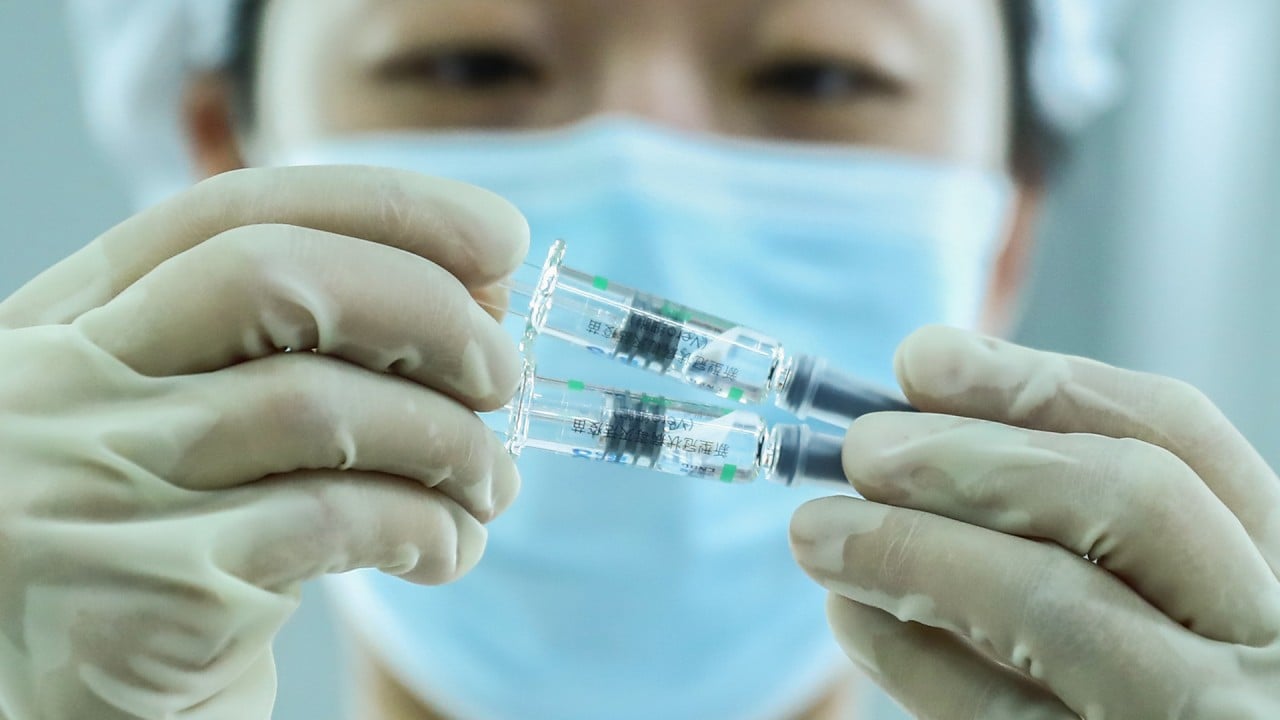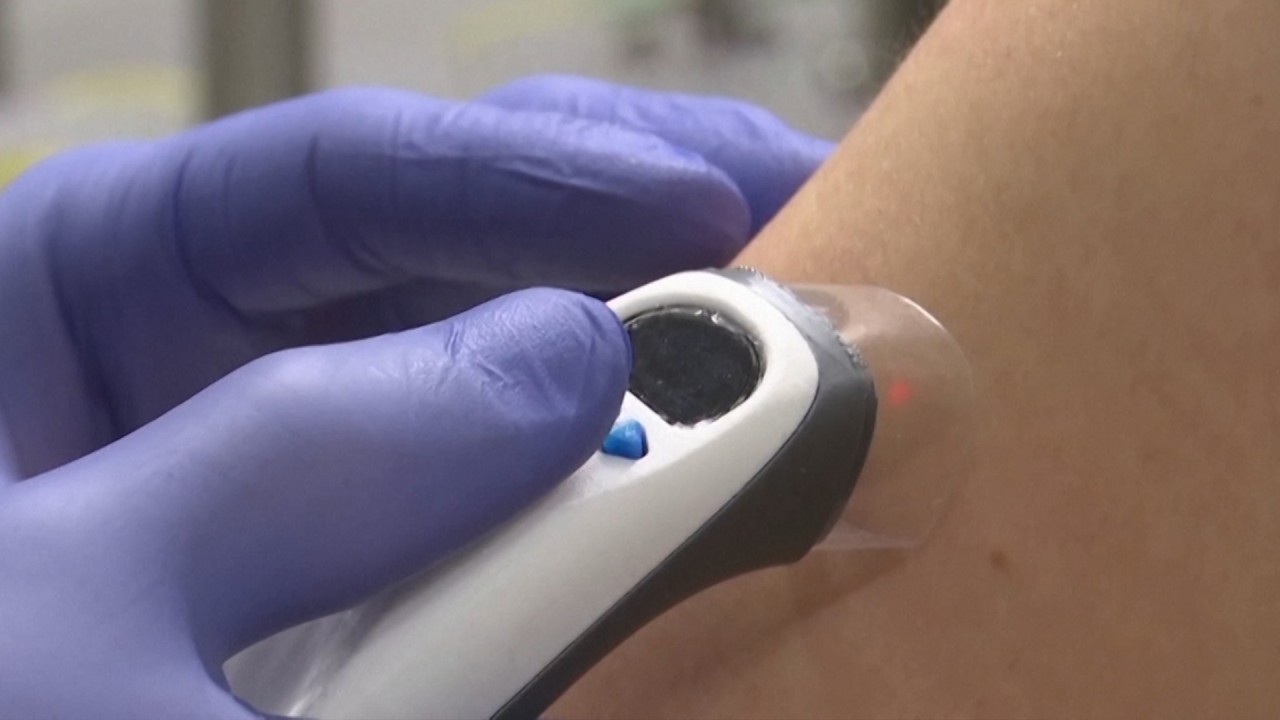
Could CanSino’s inhaled coronavirus vaccine booster be a quick, needle-free option?
- Study finds Chinese vaccine induces a higher level of immune response than a Sinovac booster for those vaccinated with two Sinovac shots
- Inhaled vaccines imitate natural Covid-19 infection, targeting the nose, throat and lungs entry points for a localised immune response
Tianjin-based CanSino said the needle free, non-invasive treatment aimed to provide quick, regular and mass-scale protection with easy administration.
China’s mass vaccination campaign has relied heavily on domestically developed inactivated shots from Sinopharm and Sinovac, both approved for emergency use by the World Health Organization and widely used by developing countries.
But the product will need to go through clinical trials for approval. A late-stage human trial involving 13,000 participants was registered on the ClinicalTrials.gov database last month.
Are inhaled Covid-19 vaccines the future?
The trial will evaluate how the inhaled vaccine protects against developing disease and severe illness, and the primary study is expected to be finished in April.
The company has not estimated its annual product capacity, however it expects the smaller amount required for inhaled doses than the same dose via injection to allow its product to go further.
The WHO has suggested that countries using inactivated shots approved by the agency for the first dose then use mRNA or vectored vaccines as part of a two-dose regimen or as a booster for better protection.
Inactivated jabs use dead material from the virus to trigger the immune system, while CanSino’s vaccine uses an adenoviral vector to deliver a virus antigen and trigger an immune response.
Injected vaccines induce system immune responses that do not specifically target the pathogen’s region of infection. But inhaled vaccines imitate natural infection by the virus and target mucosal surfaces – the nose, throat and lungs, the point of entry for pathogens – to induce a localised immune response.
The Chinese team found fewer cases of adverse reactions in the inhaled booster groups, which reported reactions such as fatigue, headache and fever. Some people said they had a dry mouth and their throat swelled.
Which vaccines stop Omicron? Search for data moves from labs to real world
The study showed that the inhaled booster had a high neutralising capability against the Delta variant – about three times the WHO international standard – while a Sinovac booster was 20 per cent lower than the benchmark.
When compared to a third dose of Sinovac, the CanSino booster showed 18-24 times higher cross-neutralising capability against Delta 28 days after the booster, according to the study.



